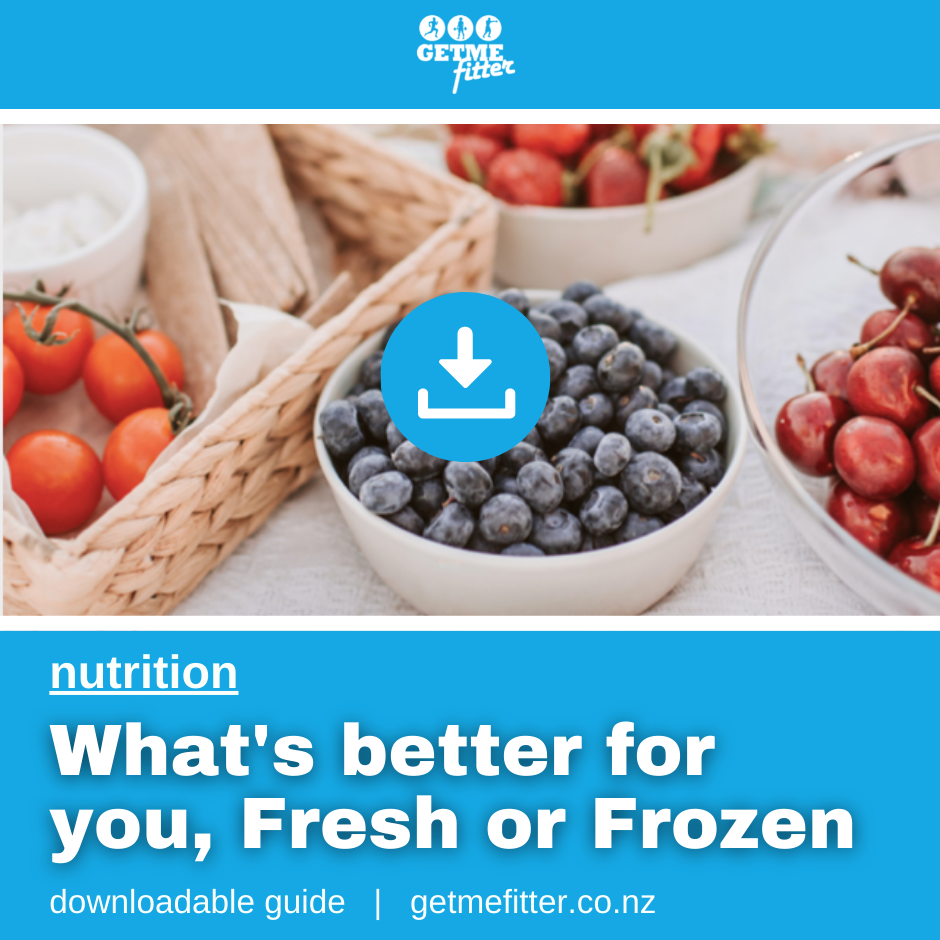Fresh vs Frozen Vegetables: Which Is Really Better for You?
When someone says healthy eating, most of us picture fresh fruit and vegetables - juicy berries, crisp carrots, vibrant broccoli, maybe some ripe tomatoes on the bench.
They’re the heroes of the fridge: ready for your next smoothie, salad, or stir-fry.
And for good reason - fruit and veg are essential for health, energy, and long-term wellbeing.
But here’s a question we rarely ask:
What about frozen fruit and vegetables?
Despite being convenient, affordable, and packed with nutrients, frozen produce still gets the cold shoulder. Let’s change that.
Fresh vs Frozen Vegetables - The Real Difference
When it comes to fresh vs frozen produce, the biggest misconception is that “fresh” automatically means “more nutritious.”
The truth? It depends on how fresh that produce really is. Fresh vegetables are often picked before they’re fully ripe, then stored, transported, and displayed for days (sometimes weeks). During that time, key nutrients like vitamin C and folate start to decline.
So while those glossy supermarket greens look great, they may have already lost a fair bit of their goodness.
The Case for Frozen: Locked-In Nutrition
Here’s where frozen vegetables shine. They’re typically harvested at peak ripeness - when nutrients are at their highest, then flash-frozen within hours.
This rapid freezing process locks in vitamins, minerals, and antioxidants, meaning frozen produce often matches or even beats “fresh” in nutritional value.
It also helps reduce food waste, cuts prep time, and keeps you stocked up… ideal for busy professionals or parents juggling work, family, and fitness goals. For the 40+ crowd trying to stay strong, lean, and healthy, that convenience is gold.
What About Fruit? Fresh vs Frozen Fruit
Fruit follows a similar story. Frozen berries, mango, and pineapple are often richer in vitamin C and antioxidants than fruit that’s been sitting around in transport.
If you love smoothies, frozen fruit is a perfect choice - it’s convenient, cost-effective, and available year-round.
Still, there’s a place for fresh fruit - especially when it’s local, seasonal, and eaten soon after picking. Flavour-wise, nothing beats a fresh summer strawberry.
When Fresh Still Wins
Let’s be real, some things are just better fresh.
Crunchy salad vegetables like lettuce, cucumber, and capsicum
Tomatoes (for that rich flavour and texture)
Fresh herbs and leafy greens
For these, fresh usually delivers more in taste and presentation. So instead of fresh vs frozen, think fresh and frozen working together.
Smart Nutrition: Combine Fresh and Frozen
Here’s the best approach:
Use fresh produce when flavour and texture matter most - raw salads, sides, or wraps.
Use frozen for cooked meals like stir-fries, soups, and smoothies.
This balance helps you:
✅ Reduce waste
✅ Save money
✅ Always have healthy ingredients ready
✅ Keep nutrient intake consistent all year round
The Verdict: Fresh vs Frozen Produce
There’s no outright winner. Both fresh and frozen vegetables have their place in a balanced, realistic diet.
If your goal is better health, more energy, and staying consistent — the best vegetables are the ones you actually eat. Whether they come from the fridge or the freezer doesn’t matter as much as making sure they’re on your plate regularly.
So, next time you’re at the supermarket, skip the guilt. Stock both.
Free Download: The Fresh vs Frozen Produce Guide
Want to know exactly which foods are better fresh and which perform best frozen?
It breaks down nutrient comparisons, storage tips, and how to build a kitchen that supports your goals - without wasting time or food.



